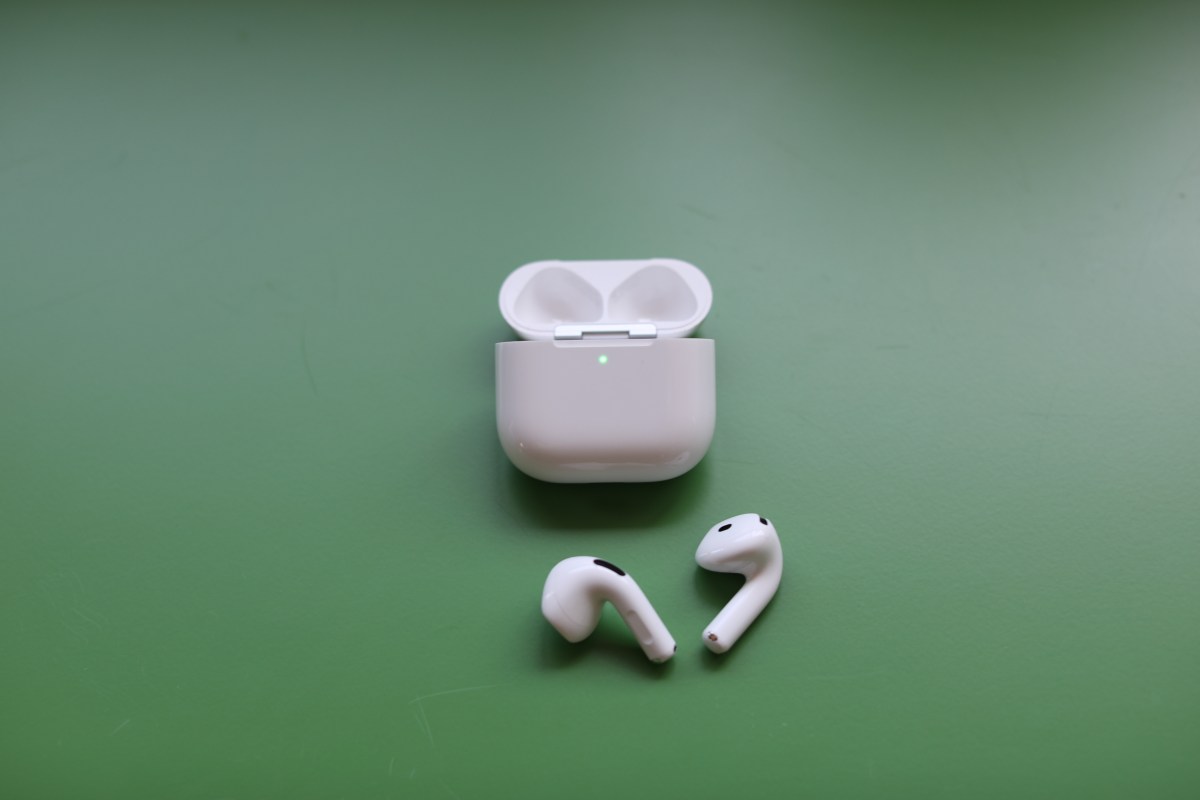I can’t recall another consumer electronics product category becoming a commodity as quickly as Bluetooth earbuds. Apple’s AirPods played a key role in that growth, of course, recapturing a kind of excitement not seen in consumer music tech since the original iPod.
AirPods’ fundamentals haven’t changed much in the eight years since they debuted. The stems are mercifully shorter, and they’ve gained some key features, but these have mostly been refinements to a product that entered the world fully formed.
Until last week, their upgrade cycle was straightforward: Apple introduces a new feature for its pricey high-end models, which filters down to the base level after a year or two. At last Monday’s iPhone 16 event, however, things got more complicated, as the base AirPods forked into two distinct products: AirPods 4 and AirPods 4 with Active Noise Cancellation.
Here’s what the line looks like:
- AirPods 4 ($129)
- AirPods 4 with Active Noise Cancellation ($179)
- AirPods Pro ($229)
- AirPods Max ($549)
I picture a lot of late-night sessions among Apple’s handsomely paid branding team, attempting to determine what to call the new tier. I can practically guarantee someone tossed out “AirPods 4.5” in a bid to leave the office before sunrise. Ultimately, however, they landed somewhere far more unwieldy. But hey, at least it does what it says on the box.

AirPods 4 with Active Noise Cancellation (referred to henceforth as “AP4wANC”) exist in a sort of liminal space. Had AirPods 4 arrived last year, perhaps Apple would have deemed these AirPods 5. As it stands, however, they’re smack in the middle of the in-ear AirPods line.
They look identical to the base model, featuring the same redesign, with a sleeker square charging case and a more ergonomic design. Apple says they scanned thousands of ears to produce 50 million data points. The results are smaller and more tapered than their predecessor. The AP4wANC also adopts some of the Pros’ best features, including wireless charging, a speaker for FindMy and the titular ANC.
There are two clear reasons why someone would choose the AP4wANC over AirPods Pro 2. The first is the $50 price difference. The second is a preference for the hard-edged, open design over the Pro’s swappable silicone tips. The former is self-explanatory, while the latter is highly subjective. I, for one, can’t wait to return to the warm embrace of the Pros’ tips.
I understand, however, that some people are deeply uncomfortable inserting anything into their ears, including a millimeter or two of silicone. If that’s you, get the AP4wANC and save some cash in the process. For my money, however, the comfort and passive noise cancelling you get with the Pros largely justifies the price gulf.
When the AirPods 4 with Active Noise Cancelling hit the stage last week, many – ourselves included – wondered how the company would maintain daylight between them and the Pro models beyond just the tips. After all, every model, save for the USB-C AirPods Max, are run off the same H2 chip. There are a few points of difference, including swipeable volume controls on the stem, better noise cancellation and a touch more battery.

While AirPods Pro 3 are rumored to be arriving sooner than later, however, the distance between the models isn’t huge, but for one surprise. Last week, the FDA gave the green light to a new software feature that let the premium model double as over-the-counter hearing aids. It’s difficult to say how large the specific audience for that feature will ultimately be, but it finds Apple charting a fascinating future for the line.
At the moment, only the AirPods Pro 2 support the feature. This is for two key reasons. First is the passive noising-cancelling properties of the silicone tips, which are key to taking iOS 18’s new hearing test. That rules out the standard AirPods 4. The second is that the H2 chip is required, which makes the original AirPods Pro a non-starter.
I wore the AP4wANC for much of my trip home from the event last week. The ANC was enough to drown out plane noises. On the subsequent train ride, however, a woman speaking loudly on her phone a few rows away made me long for the AirPods Pro noise seal. As far as comfort goes, I had no issue with the AP4wANC, where as other open-ear design models have given me trouble.
The sound is excellent, though you do lose the full picture of the music without a seal in place. Most people won’t find this to be a major issue – doubly so if most of your listening involves podcasts and audiobooks.

The fully wireless earbud market is dramatically different than the one the first AirPods entered in September 2016. It’s safe to say we’ve all changed a lot in that time. But the AirPods themselves haven’t changed too dramatically. New features have arrived, but the core is still intact.
Competition, on the other hand, has increased dramatically. Every decently sized electronics company has their own take on the space, while at the other end, there’s an endless stream of sub-$50 buds from companies you’ve never heard of that will do in a pinch.
But AirPods are still the real deal. They’re a kind of Platonic ideal most of us picture when we think of fully wireless earbuds. They sound great and fit like a glove with the rest of Apple’s hardware offerings. As for that price gulf between the AirPods 4 and AirPods 4 with ANC, $50 goes a long way here.
#Apple #AirPods #Active #Noise #Cancellation #review
